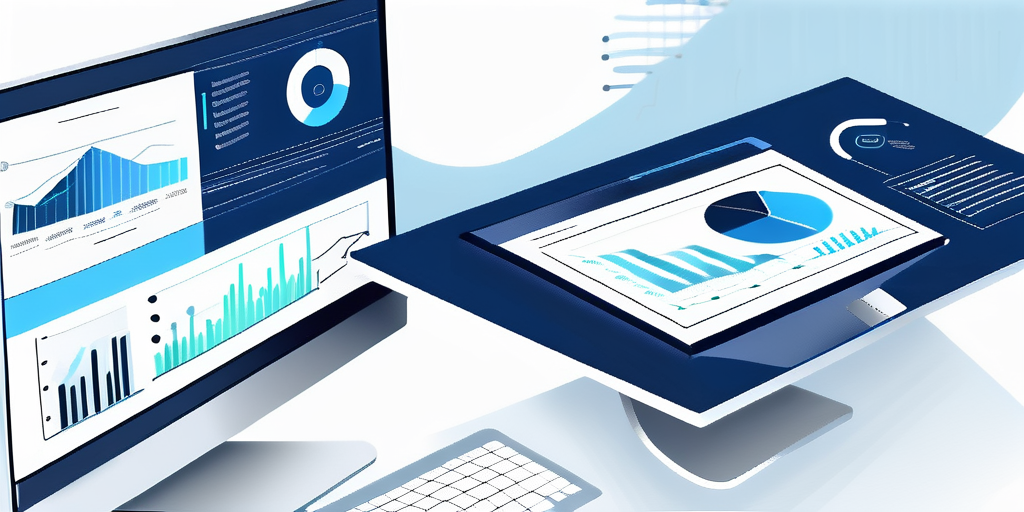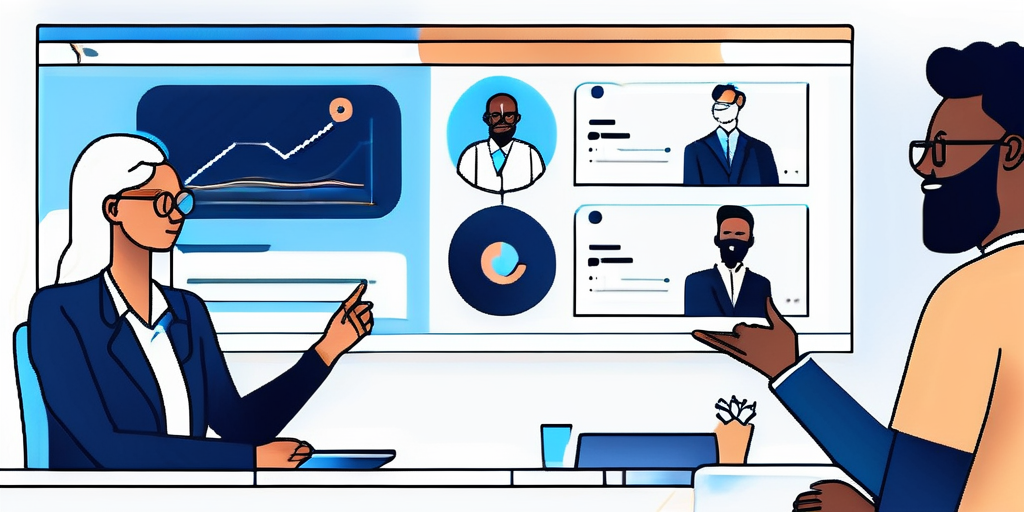In the digital age, the concept of website leads has become a fundamental aspect of online marketing strategies for small businesses. A website lead refers to a potential customer or client who has shown interest in a business’s products or services by performing a specific action on the business’s website. This could be anything from filling out a contact form, signing up for a newsletter, or downloading a free resource.
Webinars, or web-based seminars, are a powerful tool for generating website leads. They provide an opportunity for businesses to share their expertise, demonstrate their products or services, and engage with potential customers in a live, interactive setting. This article will delve into the intricacies of using webinars to generate website leads, providing a comprehensive understanding of the process and its benefits.
Understanding Website Leads
Website leads are a crucial component of any online marketing strategy. They represent potential customers who have shown a direct interest in a business’s products or services. This interest is typically demonstrated through a specific action on the business’s website, such as filling out a contact form, signing up for a newsletter, or downloading a free resource.
Website leads are not just random visitors; they are individuals who have shown a level of interest that makes them more likely to become customers. Therefore, generating website leads is a key goal for any business with an online presence.
The Importance of Website Leads
Website leads are vital for several reasons. Firstly, they provide a direct line of communication between a business and potential customers. This allows the business to nurture these leads through targeted marketing efforts, increasing the likelihood of converting them into customers.
Secondly, website leads provide valuable data about a business’s target audience. This includes information about their interests, behaviors, and preferences, which can be used to refine marketing strategies and improve the effectiveness of future campaigns.
Types of Website Leads
There are several types of website leads, each with its own characteristics and implications for a business’s marketing strategy. These include informational leads, who are seeking information about a product or service; transactional leads, who are ready to make a purchase; and relational leads, who are interested in building a relationship with a business.
Understanding the different types of website leads can help a business tailor its marketing efforts to meet the specific needs and interests of each type, increasing the likelihood of conversion.
Webinars as a Lead Generation Tool
Webinars are an effective tool for generating website leads. They provide a platform for businesses to share their expertise, demonstrate their products or services, and engage with potential customers in a live, interactive setting. This can help to build trust and credibility, making potential customers more likely to become website leads.

Webinars also provide an opportunity for businesses to collect contact information from attendees, which can be used for future marketing efforts. This makes them a valuable tool for lead generation.
Benefits of Using Webinars for Lead Generation
There are several benefits to using webinars for lead generation. Firstly, they provide a platform for businesses to showcase their expertise and demonstrate their products or services. This can help to build trust and credibility, making potential customers more likely to become website leads.
Secondly, webinars provide an opportunity for businesses to collect contact information from attendees, which can be used for future marketing efforts. This makes them a valuable tool for lead generation.
Best Practices for Using Webinars for Lead Generation
There are several best practices for using webinars for lead generation. Firstly, it’s important to choose a topic that is relevant and interesting to your target audience. This will increase the likelihood of attracting attendees and generating leads.
Secondly, it’s important to promote your webinar effectively. This includes using social media, email marketing, and other promotional strategies to reach your target audience and encourage them to attend.
Converting Webinar Attendees into Website Leads
Converting webinar attendees into website leads is a crucial step in the lead generation process. This involves encouraging attendees to take a specific action after the webinar, such as signing up for a newsletter, downloading a free resource, or filling out a contact form.

This can be achieved through a variety of strategies, including offering incentives, providing clear calls to action, and following up with attendees after the webinar.
Offering Incentives
Offering incentives is a powerful strategy for converting webinar attendees into website leads. This could include offering a discount on a product or service, providing a free resource, or giving access to exclusive content. These incentives encourage attendees to take a specific action, increasing the likelihood of them becoming website leads.
It’s important to ensure that the incentives are relevant and valuable to your target audience. This will increase their effectiveness in driving conversions.
Providing Clear Calls to Action
Providing clear calls to action is another important strategy for converting webinar attendees into website leads. This involves clearly communicating what action you want attendees to take, and how they can do it.
This could include providing a link to a sign-up form, directing attendees to a specific page on your website, or encouraging them to contact you for more information. The key is to make it as easy as possible for attendees to take the desired action.
Following Up with Attendees
Following up with attendees after the webinar is a crucial step in the conversion process. This could involve sending a thank you email, providing additional information about your products or services, or offering further incentives to encourage them to become website leads.
It’s important to follow up promptly, while the webinar is still fresh in attendees’ minds. This increases the likelihood of them taking the desired action and becoming website leads.
Measuring the Success of Your Webinar
Measuring the success of your webinar is a crucial part of the lead generation process. This involves tracking key metrics, such as the number of attendees, the number of leads generated, and the conversion rate.
These metrics provide valuable insights into the effectiveness of your webinar and can help you refine your strategy for future webinars.
Key Metrics to Track
There are several key metrics to track when measuring the success of your webinar. These include the number of attendees, the number of leads generated, the conversion rate, and the cost per lead.
Tracking these metrics provides valuable insights into the effectiveness of your webinar and can help you refine your strategy for future webinars.
Using Analytics to Measure Success
Using analytics is a powerful tool for measuring the success of your webinar. This involves using software to track key metrics, such as the number of attendees, the number of leads generated, and the conversion rate.
These analytics provide valuable insights into the effectiveness of your webinar and can help you refine your strategy for future webinars.
Conclusion
Webinars are a powerful tool for generating website leads. They provide a platform for businesses to share their expertise, demonstrate their products or services, and engage with potential customers in a live, interactive setting. This can help to build trust and credibility, making potential customers more likely to become website leads.

By understanding the concept of website leads, using webinars effectively, and implementing strategies to convert attendees into leads, businesses can significantly enhance their online marketing efforts and increase their chances of success.
Frequently Asked Questions
What is a Webinar?
A webinar is a live, web-based video conference that uses the internet to connect the individual hosting the webinar to an audience of viewers and listeners from around the world. Hosts can show themselves speaking, share their computer screens for slideshows or demonstrations, and interact with the audience through polls, Q&A sessions, and chat features. Webinars are used for a wide range of activities, including corporate training, product demonstrations, and educational presentations.
How does a Webinar work?
Webinars are hosted online using webinar software platforms that participants can access through a link. These platforms support various interactive features, such as live chat, polls, screen sharing, and recording capabilities. Participants can join the webinar through any device with internet access, including computers, tablets, and smartphones. The host controls the flow of the webinar, presenting content and engaging with participants through the available interactive tools.
What are the benefits of hosting a Webinar?
Hosting a webinar offers numerous benefits, including:
- Wide Reach: Webinars can be accessed by a global audience, removing geographical barriers to attendance.
- Cost-Effectiveness: They eliminate the need for physical venues, travel, and accommodation costs associated with in-person events.
- Engagement: Interactive features allow for real-time engagement with attendees, enhancing the learning experience and fostering a connection.
- Lead Generation: Webinars can be a powerful tool for generating leads and nurturing relationships with potential customers.
- Content Repurposing: Recorded webinars can be repurposed as marketing material or educational resources, providing ongoing value.
What are the key components of a successful Webinar?
A successful webinar typically includes:
- Compelling Content: Relevant, informative, and engaging content that meets the needs and interests of the target audience.
- Robust Platform: A reliable webinar platform that supports the necessary interactive features and accommodates the expected number of participants.
- Promotion: Effective marketing strategies to attract and register participants, such as email campaigns, social media promotion, and website announcements.
- Engagement Strategies: Utilizing polls, Q&A sessions, and live chat to interact with the audience and keep them engaged.
- Follow-Up: Sending post-webinar communications, such as thank-you emails, survey links for feedback, and access to the webinar recording.
How can participants get the most out of attending a Webinar?
Participants can enhance their webinar experience by:
- Preparing Questions: Coming to the webinar with prepared questions can make the Q&A sessions more valuable.
- Participating Actively: Engaging with polls, chats, and Q&A sessions enriches the learning experience.
- Taking Notes: Writing down key points and takeaways helps retain information and apply it after the webinar.
- Using a Good Internet Connection: Ensuring a stable internet connection reduces the chances of technical issues disrupting the experience.
- Providing Feedback: Offering feedback to the host can improve the quality of future webinars and ensure that content remains relevant and engaging.